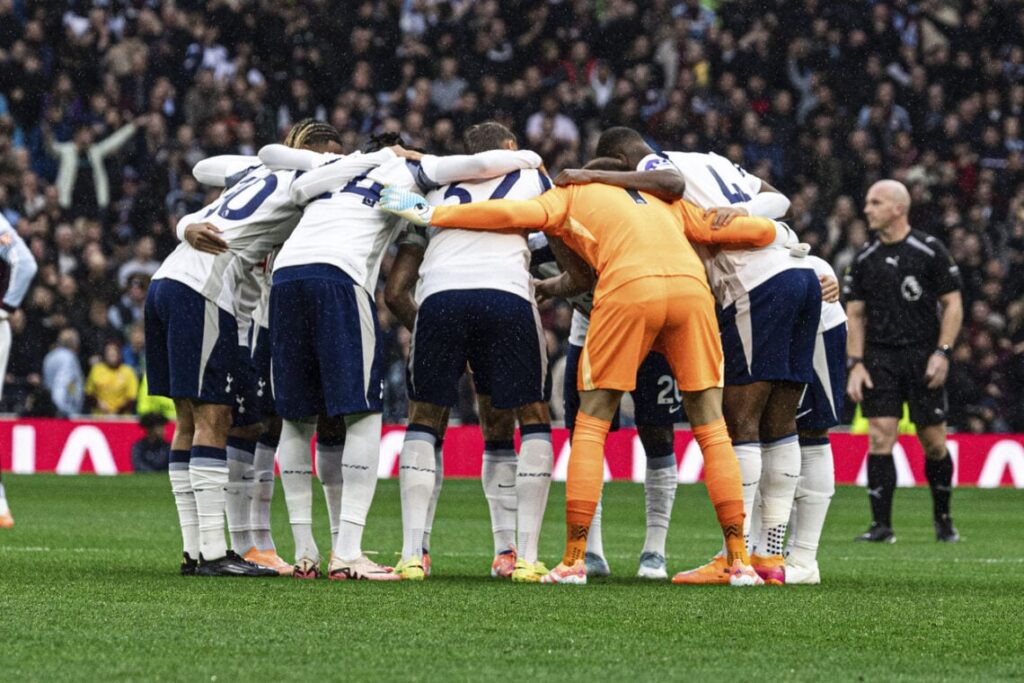Tottenham’s struggles in recent weeks have triggered growing tension behind the scenes, and the conversation is no longer limited to supporters or pundits.
Some Spurs players have begun to question the approach Thomas Frank takes when preparing the team for matches, and there is a growing sense inside Hotspur Way that something fundamental needs to change if their performances are to improve.
Frank is not under pressure because of Tottenham’s league position or their standing in Europe. Spurs are still in a respectable spot in both competitions. Instead, frustration stems from how poor the performances have been, especially in big matches where the team looks passive, predictable, and disconnected.
The lack of attacking threat is becoming impossible to ignore. Earlier this month, Tottenham produced an xG of just 0.05 in a home defeat to Chelsea, a statistic that underlined how little they offered in front of goal.
They followed that with an xG of only 0.07 against Arsenal, along with just four touches inside the Gunners’ box across the entire 90 minutes. For a squad filled with attacking talent, those numbers are alarming.
Reports suggest that the tactical approach is now being scrutinised from within. According to sources familiar with the dressing-room mood, several players believe that Frank’s constant adjustments from game to game are contributing to the team’s inconsistency.

They feel the constant tactical tinkering is preventing the team from developing rhythm, confidence, or any real identity with the ball. Changing the structure so often leaves players unsure of their roles, and the result is a side that looks hesitant and flat when attacking.
There is also a belief among some members of the squad that Frank is too focused on the opponent, shaping his game plans around nullifying threats rather than capitalising on Tottenham’s strengths.
They want him to trust the quality within the squad and allow them to play with more freedom, instead of setting up every week as if the main priority is damage limitation.
While it is not clear how widespread these concerns are, their existence alone highlights a growing disconnect between the manager’s approach and what several players feel the team needs.
Throughout the season, Frank has spoken publicly about wanting Tottenham to be brave, aggressive, and proactive. Yet very little on the pitch reflects those ambitions.
His commitment to defensive organisation and transition control is admirable and has been a key part of his coaching identity throughout his career. But at Spurs, this approach appears to be holding the team back rather than lifting them forward.
The focus on preventing transitions often leads to overly cautious possession, with midfielders and forwards reluctant to take risks or move into advanced areas. As a result, Tottenham’s attacking play becomes predictable, slow, and far too easy for opponents to contain.
Frank now faces a difficult dilemma. To change the team’s approach, he would have to step away from the principles that brought him success at Brentford and helped earn him the job at Tottenham in the first place.
His method has always relied on structure, discipline, and detailed analysis of the opposition. But Spurs supporters and some within the squad want to see a more expressive, confident style that reflects the club’s traditions and suits the players available.
The challenge is finding a balance. Continuing with the current approach risks further frustration, especially if the team keeps producing performances where the attack barely functions. But abandoning his established methods too quickly could make the team even more unstable, especially when building a new identity takes time.
The players want clarity, consistency, and a plan that focuses more on what Tottenham can do rather than what the opponent might do. They want a sense of purpose in possession, not just organisation without the ball.
Ultimately, Frank is entering a crucial stage in his early Tottenham tenure. The results alone have not made his position vulnerable, but the performances and growing concerns from within the squad cannot be ignored.
If he continues with his cautious style, he risks losing the players’ trust. If he opens up the team too much, he risks compromising the stability he values so highly. Somewhere between those extremes lies the solution Spurs need and he will have to find it quickly if the team is to regain confidence, identity, and momentum.
